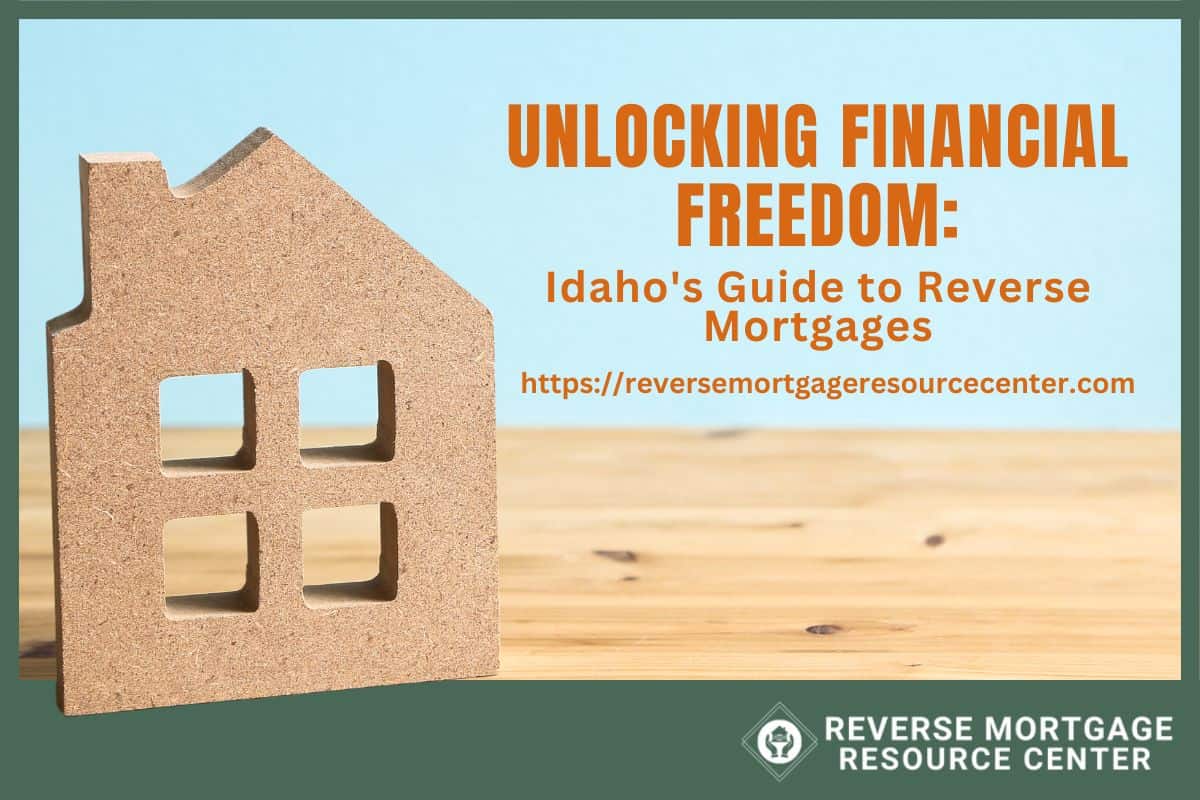Unlocking Financial Freedom: Idaho’s Guide to Reverse Mortgages
Many people aim for financial independence, especially as they approach retirement age. Reverse mortgages are one option for Idaho citizens interested in obtaining financial independence. We will delve into reverse mortgages in this detailed guide, analyzing what they are, how they work, their benefits and drawbacks, and how they may be a helpful instrument for safeguarding your financial future in the Gem State.
Understanding Reverse Mortgages
What Is a Reverse Mortgage?
A reverse mortgage is a one-of-a-kind financial product that allows homeowners aged 62 and up to convert a portion of their home equity into cash without selling their house or making monthly mortgage payments. Rather than the lender makes payments to the homeowner, the lender advances funds to the homeowner, hence the term “reverse” mortgage.
How Does a Reverse Mortgage Work?
The principles of a reverse mortgage are straightforward. Here’s a step-by-step explanation of how it works:
Eligibility: In Idaho, you must be at least 62 years old, own your house outright or have a low mortgage balance that may be paid off with reverse mortgage money, and live in the home as your principal residence.
Loan Application: Begin by applying for a reverse mortgage with an approved lender. The lender will evaluate your financial status, the value of your house, and the loan program that best meets your needs.
Home Appraisal: The lender will have your home appraised to ascertain its market worth. This appraisal and other considerations, such as interest rates and age, determine how much you can borrow.
Loan Approval & Disbursement: Once approved, you can decide how to receive the reverse mortgage cash. A lump sum, monthly payments, a line of credit, or a combination of these choices are available.
No Monthly Payments: One of the primary advantages of a reverse mortgage is that you are not compelled to make monthly mortgage payments. Instead, as interest accumulates, the loan balance grows over time.
Loan Repayment: The debt becomes due when you move out, sell your home, or pass away. You or your heirs can repay the loan by selling the house or utilizing other assets.
Remaining Equity: If there is any equity left over after the loan is repaid, it belongs to you or your heirs. If the loan balance exceeds the home’s value when the loan becomes due and payable, the difference is covered by FHA insurance. Benefits of Reverse Mortgages in Idaho.
1. Supplement Retirement Income
One of the most significant benefits of a reverse mortgage is that it can provide a consistent source of funds during retirement. Idahoans can utilize this extra money to cover daily expenses, medical bills, house repairs, and travel and leisure activities.
2. Maintain Homeownership
A reverse mortgage allows you to borrow against your home equity while still owning it. You can stay in your home for as long as you like, as long as you match the loan criteria, such as making it your primary residence.
3. No Monthly Mortgage Payments
Traditional mortgages necessitate monthly payments, which can be too expensive for seniors on a fixed income. There are no monthly payments with a reverse mortgage, which provides financial comfort and peace of mind.
4. Tax-Free Funds
The IRS does not usually consider reverse mortgage proceeds to be taxable income. This means you can enjoy the funds without worrying about additional tax liabilities.
5. Versatile Payout Options
Idaho residents have the option of receiving their reverse mortgage funds in a variety of ways. You can design the compensation to match your financial circumstances, whether you choose a flat sum, regular monthly payments, a line of credit, or a combination.
Considerations Before Getting a Reverse Mortgage
While reverse mortgages provide many advantages, assessing the potential disadvantages and carefully determining if this financial strategy is good for you is critical. Here are some important considerations to bear in mind:
1. Loan Costs
Origination fees, mortgage insurance payments, and closing costs are common upfront costs with reverse mortgages. It’s critical to understand these expenses and weigh them into your selection.
2. The Effect on Heirs
If you intend to leave your house to your heirs, a reverse mortgage may impact their inheritance. Your estate will be required to repay the loan balance, which often requires heirs to sell the property.
3. Home Equity Reduction
A reverse mortgage will reduce the equity in your property over time. This may limit your capacity to use the equity for other objectives, such as downsizing or relocating.
4. Maintenance, Homeowners Insurance and Property Taxes
You are still liable for house maintenance, maintaining homeowners insurance, and property taxes, even with a reverse mortgage. Failure to do so could result in loan default.
5. Impact on Government Benefits
The proceeds from a reverse mortgage may influence your eligibility for government assistance like Medicaid or Supplemental Security Income (SSI). Consult a financial expert to learn how a reverse mortgage may affect your advantages.
Finding the Right Reverse Mortgage Lender in Idaho
Choosing the correct reverse mortgage lender is a vital step in the process. Here are some pointers for locating a reliable lender in Idaho:
Research: Look for lenders who offer reverse mortgages in your area. Look for lenders who have a proven track record and great customer feedback.
Compare Offers: Obtain quotes from different lenders to evaluate interest rates, fees, and loan terms. This will assist you in locating the best terms for your scenario.
Check Credentials: Confirm that the Federal Housing Administration (FHA) approves the lender to offer reverse mortgages. This accreditation demonstrates that they follow FHA requirements and regulations.
Inquire: Do not be afraid to inquire about the reverse mortgage procedure, terms, and any concerns you may have. A respectable lender will deliver clear and comprehensive responses.
Seek Recommendations: Speak with friends, family members, or financial advisors who have used reverse mortgages. They can offer useful insights and recommendations.
Final Thoughts
Unlocking financial freedom through a reverse mortgage in Idaho might be a practical choice for seniors wishing to supplement their retirement income while keeping homeownership. However, it’s critical to carefully weigh the advantages and disadvantages and engage with financial consultants or housing counselors to ensure it coincides with your financial goals and needs.
Understanding how reverse mortgages work, determining your eligibility, and choosing a trustworthy lender will allow you to make an informed decision that will allow you to enjoy your retirement years in the beautiful Gem State to the fullest. Remember that financial freedom is attainable, and a reverse mortgage could be the key to achieving it.
REVERSE MORTGAGE RESOURCE CENTER ~LIVE LIFE ON YOUR TERMS~
Our Lending Team has been serving our clients since 2004. We are passionate about serving our clients with integrity to help them achieve their financial goals.







